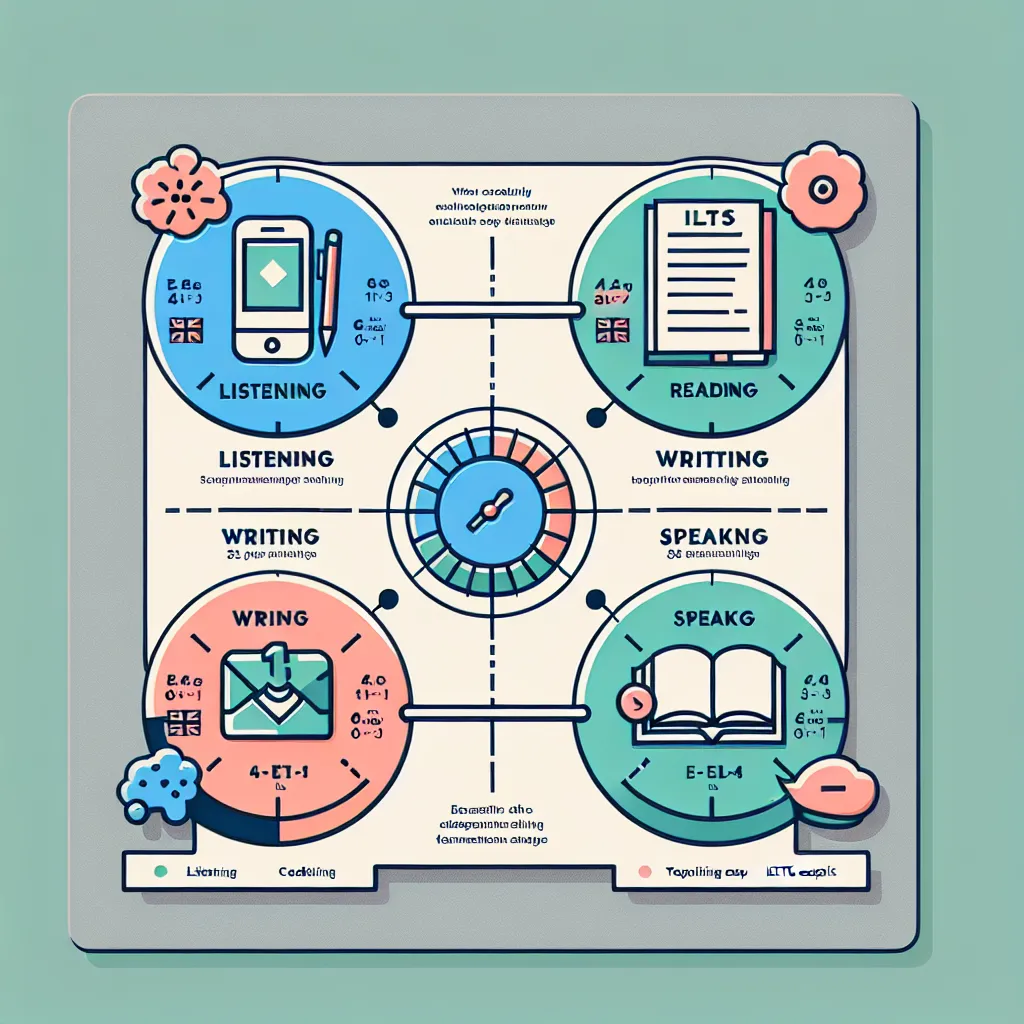Are you facing the challenge of preparing for the IELTS exam in just two weeks? While it may seem daunting, with the right strategy and dedication, you can significantly improve your chances of success. This comprehensive guide will walk you through an effective two-week IELTS preparation plan, helping you maximize your time and boost your performance across all four test sections.
Understanding the IELTS Exam
Before diving into the preparation strategy, it’s crucial to understand what the IELTS exam entails. The International English Language Testing System (IELTS) assesses your English language proficiency across four key areas: Listening, Reading, Writing, and Speaking. Each section requires specific skills and strategies, which we’ll address in this guide.

Creating Your Two-Week Study Plan
Week 1: Intensive Skill Building
Days 1-2: Listening Practice
- Familiarize yourself with various accents by listening to podcasts, news broadcasts, and IELTS practice materials.
- Practice note-taking skills while listening to academic lectures.
- Complete at least two full-length IELTS listening practice tests.
Days 3-4: Reading Enhancement
- Focus on improving your reading speed and comprehension.
- Practice skimming and scanning techniques with IELTS-style texts.
- Complete multiple reading practice tests, timing yourself strictly.
Days 5-6: Writing Mastery
- Review the structure for IELTS Writing Task 1 (describing graphs/charts) and Task 2 (essay writing).
- Practice writing at least two essays and two graph descriptions, focusing on time management.
- Learn common academic vocabulary and phrases to enhance your writing.
Day 7: Speaking Skills
- Familiarize yourself with the IELTS speaking test format.
- Practice speaking on various topics, recording yourself to identify areas for improvement.
- Work on fluency, pronunciation, and expanding your vocabulary.
Week 2: Mock Tests and Refinement
Days 8-10: Full-Length Practice Tests
- Take at least three full-length IELTS practice tests under exam conditions.
- Analyze your performance in each section, identifying strengths and weaknesses.
- Focus on time management strategies for each section.
Days 11-12: Targeted Improvement
- Based on your mock test results, concentrate on your weakest areas.
- Review common IELTS question types and practice specific strategies for tackling them.
- Continue building your vocabulary with focus on academic and topic-specific words.
Day 13: Final Review
- Revisit key strategies for each section of the test.
- Review common mistakes and how to avoid them.
- Practice relaxation techniques to manage exam stress.
Day 14: Pre-Exam Preparation
- Light review of important points and strategies.
- Prepare all necessary documents for the exam day.
- Get a good night’s sleep and stay hydrated.
Essential Tips for Each IELTS Section
Listening
- Practice active listening by predicting what you might hear next.
- Pay attention to signpost words that indicate a change in topic or direction.
- Don’t leave any answers blank – make an educated guess if unsure.
Reading
- Start with a quick skim of the entire passage before answering questions.
- Use the questions as a guide to locate specific information in the text.
- Manage your time wisely, allocating about 20 minutes per passage.
Writing
- Spend 5-10 minutes planning your essay before you start writing.
- Use a clear structure with an introduction, body paragraphs, and conclusion.
- Proofread your work in the last few minutes, checking for grammar and spelling errors.
Speaking
- Speak clearly and confidently, even if you’re not sure about your answer.
- Use a variety of vocabulary and sentence structures to showcase your language skills.
- Practice the art of expanding on your answers without going off-topic.
Maximizing Your Study Time
To make the most of your two-week preparation period:
- Create a dedicated study space free from distractions.
- Use high-quality IELTS preparation materials and official practice tests.
- Set specific daily goals and track your progress.
- Take regular short breaks to maintain focus and avoid burnout.
- Find a study partner or join online IELTS forums for support and motivation.
Common Pitfalls to Avoid
- Don’t try to memorize answers or essays. Examiners are trained to spot this.
- Avoid cramming new vocabulary on the last day. Focus on using the words you know well.
- Don’t neglect any section of the test. A balanced approach is key to success.
- Don’t panic if you encounter difficult questions. Stay calm and move on if necessary.
Next Steps After Your Two-Week Preparation
After completing your intensive two-week preparation:
- Review your progress and identify any remaining weak areas.
- Continue practicing with past papers until your exam date.
- Stay immersed in English by watching English-language media and reading widely.
- Consider seeking feedback from a tutor or experienced IELTS candidate on your speaking and writing.
Conclusion
Preparing for IELTS in two weeks is challenging but achievable with the right approach. By following this structured plan and focusing on targeted practice, you can significantly improve your performance across all sections of the test. Remember, consistency and dedication are key to success. Stay motivated, manage your time wisely, and approach the exam with confidence. Good luck with your IELTS journey!